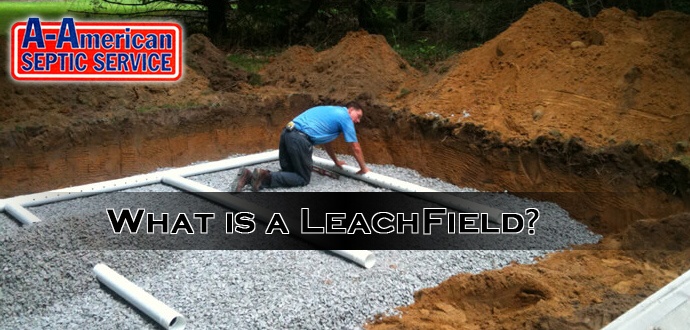What is a Leach Field?
Although many homeowners get the idea of how their septic tank system works, they may not be knowledgeable with the leach field, an essential part of the septic system. Septic leach fields are used to extract impurities and any pollutants from the liquid that leaves the septic tank. Leach Fields are sometimes referred to as Leach Fields, Weeping Beds or Leach Drains. Leach Fields come in various designs depending on your soil and details of your property. The septic tank, the leach field and any accompanying piping make up a complete septic system.
Leach Field Maintenance
Just like all sewage systems, septic systems need to be regularly maintained. Leach field maintenance is no different from your septic tank maintenance. Basically, by taking tiptop care of the bacteria levels inside the septic tank and remembering regular septic tank pump out schedules, you are taking the steps necessary to maintain your leach field. If correct septic tank maintenance was forgotten or ignored and the leach field is failing, you need to find septic shock treatments for the system, or maybe think about replacing it. The average leach field can last between 15 and 25 years if correctly maintained. Proper maintenance of your leach field begins with by keeping an eye on water usage and what enters your septic system.
The most important and easiest maintenance step is to carefully watch what enters into your septic system. Anything that doesn’t biodegrade, such as metal or plastic, will fill the tank right away and may end up in your leach field. Even with preventive maintenance, you should pump the septic tank every 3 to 5 years to pump out the sludge. It also helps to add beneficial organisms to speed up decomposition. Be on the lookout for trees or shrubs near your leach field. Their roots can infiltrate and block the drainage pipes. If you think this might be happening, you may have to remove the trees or bushes.
The Reasons for Leach Field Failure
There are 2 main reasons that a leach field can fail. One is hydraulic overload. Hydraulic overload happens when too much water is sent to an inadequately designed system. Capacity is generally determined by the number of bedrooms you have in your house. This is not always the case which is why; as older homes are renovated or if a hot tub is installed, the volume of wastewater becomes too much for the septic system to handle.
Biological overload is another reason. Biological overload happens when too much organic matter is in the effluent leaving the septic tank. A decrease in bacteria counts in septic tanks or needless solid build up in the tank can lead to particulates making their way into the leach field and developing biomat, which leads to the leach field failure.
Septic Leach Field Do’s and Don’ts
- Keep records to know exactly where your leach field is located.
- Keep heavy equipment off your leach field.
- Lessen water use or surges. Usually these leach fields don’t have unlimited capacity.
- Divert downspouts away from the leach field.
- Don’t plant trees or shrubbery on or around the leach field.
- Do not drive a vehicle over the leach field.
- Do not cover your leach field with a hard surface.
- DON’T wait for signs of failure. Inspect the septic system regularly.
When Should I Replace My Leach Field?
There are 2 reasons that your leach field would need to be replaced instead of merely be repaired. A leach field has a lifespan of approximately 20 years. If your leach field is reaching the end of its lifespan, it might be easier to replace it than to invest money repairing it when it will most likely fail again. Another reason to replace your leach field would be if all repair attempts fail. If a leach field becomes overloaded for too long, it could be past the point of being repaired. If continual attempts to repair your leach field have failed, it might need replacing.
Septic Service Phoenix, Arizona
If you think you may be having problems with any part of your septic system, call A-American Septic Service, and let the experts help you troubleshoot any issues you may have concerning your septic system. Call us in Phoenix, Arizona today at 602-455-3878.







